The “realists” who want to pressure Ukraine to trade territory for peace are wrong to believe that doing so would work, according to Syracuse University’s Renée de Nevers and Brian D. Taylor, the author of The Code of Putinism (2018).
If Ukraine capitulated, Putin would simply pocket his gains and seek to further subjugate the country in the future, they write for the Journal of Democracy:
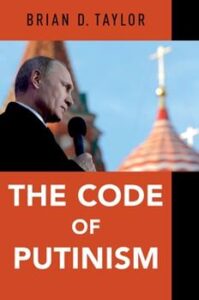 Moreover, by backing such a “resolution” the West would become complicit in undermining the UN system of sovereign states and respect for territorial integrity. Finally, if a powerful state is simply allowed to change its mind about existing borders and treaties, invade and bomb its neighbors, and seize territory by force, what’s to stop others from doing so in the future?
Moreover, by backing such a “resolution” the West would become complicit in undermining the UN system of sovereign states and respect for territorial integrity. Finally, if a powerful state is simply allowed to change its mind about existing borders and treaties, invade and bomb its neighbors, and seize territory by force, what’s to stop others from doing so in the future?
Supporting Ukraine is squarely in America’s national interest, The Washington Post adds. Turning inward would invite a power vacuum that Moscow, Beijing, Tehran, Pyongyang and too many others would be all too happy to fill. China is watching. Taiwan becomes more vulnerable if Russia gets away with annexing large swaths of a neighboring sovereign country.
The Kremlin is employing the term “Russophobia” in an attempt to justify the Russian Federation’s war crimes in Ukraine, according to Timothy Snyder, Professor of History at Yale University.
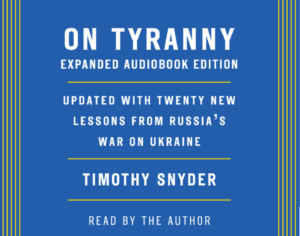 The harm being done to Russians and Russian Federation culture is primarily due to Moscow’s own policies and actions, he told the United Nations (above), spotlighting the emigration of creative Russians due to its invasion of Ukraine; destruction of independent Russian journalism; attacks on culture, books, museums and other landmarks; mass killings of Russian speakers and citizens; and Russian Federation State television proclamations. The claim that Ukrainians are sick with a disease called “Russophobia” is simply colonial rhetoric and part of a larger strategy of hate speech, he stressed.
The harm being done to Russians and Russian Federation culture is primarily due to Moscow’s own policies and actions, he told the United Nations (above), spotlighting the emigration of creative Russians due to its invasion of Ukraine; destruction of independent Russian journalism; attacks on culture, books, museums and other landmarks; mass killings of Russian speakers and citizens; and Russian Federation State television proclamations. The claim that Ukrainians are sick with a disease called “Russophobia” is simply colonial rhetoric and part of a larger strategy of hate speech, he stressed.
Snyder, an expert on Ukrainian history, recently noted in an interview, bad ideas can kill people: Russian ideas about history, culture and language have been catalysts to the current conflict, notes Senior Research Fellow at the University of Toronto.
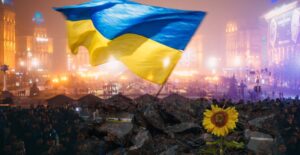
Credit: NDI
An online benefit event will be broadcast on the Munk School of Global Affairs and Public Policy’s YouTube channel on March 17-19, 2023, in an attempt to raise the funding required to establish a Centre for Civic Engagement at Kyiv Mohyla Academy, he writes for The Conversation. Keynotes at this benefit conference will be delivered by two of Ukraine’s pre-eminent public intellectuals, Mychailo Wynnyckyj and Volodymyr Yermolenko, who in the current conflict have been drawing on their scholarship and academic background to counter Russian mythology.
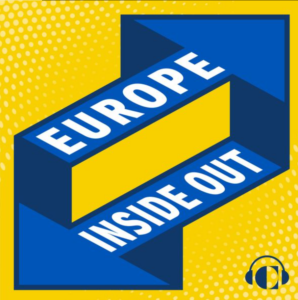 What can civil society leaders and public officials do to bring about a Ukrainian victory? That was the topic of conversation in a series of roundtable discussions in Prague and Berlin that the Renew Democracy Initiative hosted in partnership with American Purpose, RDI’s James Lewis writes:
What can civil society leaders and public officials do to bring about a Ukrainian victory? That was the topic of conversation in a series of roundtable discussions in Prague and Berlin that the Renew Democracy Initiative hosted in partnership with American Purpose, RDI’s James Lewis writes:
Hopes for Ukraine were high, but with a healthy sense of concern. On the one hand, Ukrainian forces have proven themselves extremely capable and support from Western countries remains strong. On the other hand, supplies promised to Ukraine months ago are arriving too slowly and a decisive Ukrainian victory isn’t in sight yet. Ukraine is holding, but Ukrainians need more help to completely free their country from Russian occupation.
It took years for Europeans and Americans to understand what the rise of fascism in the early twentieth century meant and what was needed for its defeat, notes national security analyst Joseph Cirincione. Many never thought such a struggle would come again, or still don’t recognize it now that it has. But without abandoning valid critiques of the past, we can focus on the new task, he writes for Persuasion:
Though Putin has long been consolidating his regime domestically, we have just passed the first year of its manifestation on the global stage. And the world’s response has overall been swifter and stronger than it was when fascism rose one hundred years ago. After a year of war, “a stable 65% of U.S. adults prefer that the United States support Ukraine in reclaiming its territory,” according to the latest Gallup poll.
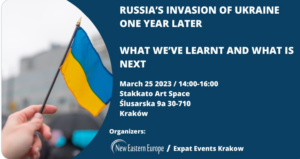 Please join a special live expert discussion on the lessons from Russia’s invasion of Ukraine and what might be expected next. The discussion features two experts on security and the region of Central and Eastern Europe. Joining us will be Wojciech Michnik an assistant professor of International Relations and Security Studies at Jagiellonian University and Yulia Kazdobina, head of the Ukrainian Foundation for Security Studies (Kyiv).
Please join a special live expert discussion on the lessons from Russia’s invasion of Ukraine and what might be expected next. The discussion features two experts on security and the region of Central and Eastern Europe. Joining us will be Wojciech Michnik an assistant professor of International Relations and Security Studies at Jagiellonian University and Yulia Kazdobina, head of the Ukrainian Foundation for Security Studies (Kyiv).
The discussion will be moderated by Adam Reichardt, Editor in Chief of the New Eastern Europe magazine. Date: March 25 2023. Time: 14:00-16:00. CEE. RSVP







